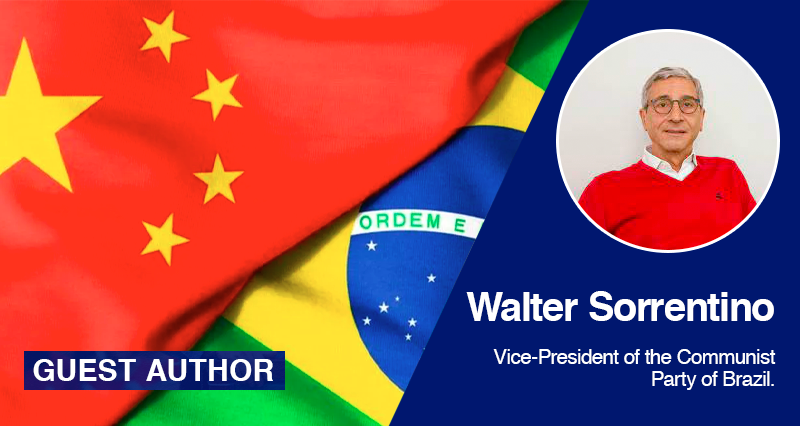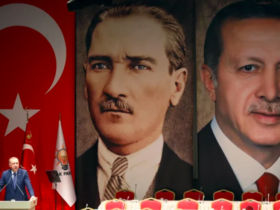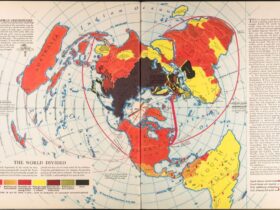By Walter Sorrentino *
It is an honor to address you in congratulating on the success of the 20th Congress of the CPC of China at a time of rejoicing for theextraordinary victoryachieved in Brazil, electing president Luiz Inácio Lula da Silva. We defeated the main world representative of the extreme right in the government of a large country, who promoted the dismantling of the National State and was a candidate for re-election.
With Lula, new paths will open for Brazil towards democracy and, above all, the national reconstruction and transformation, with sovereign development, social progress and a proud and proactive place for the country in the world.
We will have a great reinforcement of the global strategic partnership between China and Brazil, within the scope of the BRICS and multilateralism, which will be a great impetus for the fulfillment of the national project of victorious development at the ballot box.
It is encouraging that this journey coincides with the successful holding of the 20th Congress of the CP of China, under the leadership of Xi Jinping, to whom I warmly greet.
The CP of China directs the historical epic of revitalization of the Chinese nation in the most advanced experiment of a new economic and social development, based on the prodigious advances of science and human ingenuity, based on unique characteristics of the great Chinese nation, living in an interdependent world of capitalist predominance.
With this victorious congress, a new era opens in China, for the integral construction of a modern socialist country, adapting the strategic line for this purpose.
China stands out as a trailblazer, adapting Marxist socialist theory to contemporary times in its unique conditions. The direction of political power by the CPC proves to be decisive, with an impressive ability to adapt strategies to each stage and phase of economic construction, rational and scientific planning, high mastery over the law of socialist construction and the laws of development of human society.
The Chinese experience has been proving that practice is the criterion of truth and the engine of theoretical development.
If it were just a work of a national nature, it would already be magnificent for a population that exceeds the sum of all developed countries, and an economy that is already the largest in the world in terms of PPP, which has eliminated poverty, disputes the technological edge and develops the forms advanced economic planning.
But the 20th Congress projects beyond, it has much to say to the world and to the very destiny of Humanity.
The last forty years, in particular, have been one of darkness, crisis and aggression. Changes of historical scope in the revolution of the productive forces and in the correlation of international forces that are experienced in the world, alongside the multiple crises of the capitalist world, in fact present challenges and unpredictability.
But, at the same time, strategic opportunities are being created today to overcome the dilemmas that we live on a global scale. On the global geopolitical level, a new rise in China’s international status and its proposal for a greater role in global governance, of a progressive nature, will be of extraordinary importance for the people.
So, despite everything, a new time of hope is already looming on the horizon.
I like to think that we are going well beyond considering socialism as a ready-made new systemic logic, as we thought of it during the 20th century.
What is being developed is to think of it historically and concretely, in the spirit of the challenges of the time – the national and global context, in particular -, as a regime that develops over time, in a series of stages and phases, in a system of relationships that encompass not only the material base in interaction with the character of the political and institutional regime, but also in the interaction between production and social reproduction and the relationship between society and nature.
It is about a higher vision of concrete historical totality, of multiple determinations in dynamic and contradictory interaction, in global connection. Within this, a key condition is to interpret the singularities of each national Economic Social Formation, where modes of production coexist synchronously (and contradictorily) in unique, historically constituted configurations.
This means that the national strategic approach remains indispensable. The self-determination and sovereign development of nations, which are counter-hegemonic in the face of the logic of neoliberal and neocolonial financialization, play a decisive role.
Such events are historical and encourage us, as the still young Marx said in a Letter to Arnold Ruge in 1843 to promote the “self-understanding of the age about its struggles and desires.” He called us “not mean that we shall confront the world with new doctrinaire principles and proclaim: Here is the truth, on your knees before it! It means that we shall develop for the world new principles from the existing principles of the world.”
That is the challenge for all of us. What is underway in China is work for the world and for us, giving new meaning to socialism. If we want to assume our responsibility for the fate of peoples, the planet and civil and human relations, and enrich the beautiful symphony of civilization, we have to promote a new socialist horizon and do so from the concrete milestones of the present time and ongoing global crises.
It is very fair, therefore, that the CP of China directs the powerful call to a common destiny of Humanity, of shared interests among nations, democratizing international relations, in favor of world peace, as a way to ensure better material and spiritual living conditions for peoples all over the world.
Thank you very much.
* National Vice President of the Communist Party of Brazil (PCdoB)
Speech held at the 3rd International Academic Conference on “The Communist Party of China and the World: The Chinese Path to Modernization and a New Way for Humanity to Advance” carried out by Renmin University of China. The Conference brought together on November 25th and 26th, 2022 around 26 politicians and academics from 14 countries.
First published in Portuguese here, translation by UWI.

















Leave a Reply